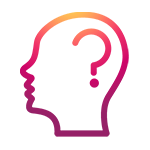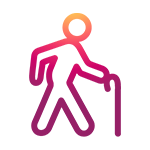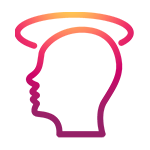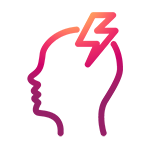What is a Stroke?

A sudden loss of blood flow to the brain or bleeding inside the head leads to a stroke or a brain attack. Each stroke can cause brain cells to stop functioning or eventually die. When nerve cells in the brain die, the function of the body parts that they were controlling is either harmed or lost. Some people recover completely and others can be seriously disabled or can even die.
What are the symptoms of Stroke?

Sudden numbness or weakness of face, arm or leg

Confusion, trouble speaking

Vision difficulty

Walking trouble

Dizziness

Loss of balance

Severe headache with no cause
- Transient Ischemic Stroke
- Ischemic Stroke
- Hemorrhagic Stroke
Two main causes of stroke
- Blocked artery
- Leaking or bursting of a blood vessel
- Age
- Gender
- Family history
- Heart disease
- Drug and alcohol use
- Weight
- Diabetes
Diagnostic tests
- Neurological exam
- Brain imaging tests
- CT
- MRI
- Blood flow tests
- Carotid ultrasound
- Transcranial ultrasound
- Angiography
- EKG or ECG
The aim of treatment for all stroke patients is to prevent further brain damage. If the stroke is caused by blocked blood flow to the brain
- Tissue Plasminogen Activator
- Blood thinning drugs – anticoagulants and antiplatelet medications
- Carotid endarterectomy
If stroke is caused by bleeding
- Drugs to maintain normal blood clotting
- Surgery to decrease pressure in the brain
- Surgery to fix blood vessels
- Blocking off bleeding vessels
- Drugs that prevent brain swelling

